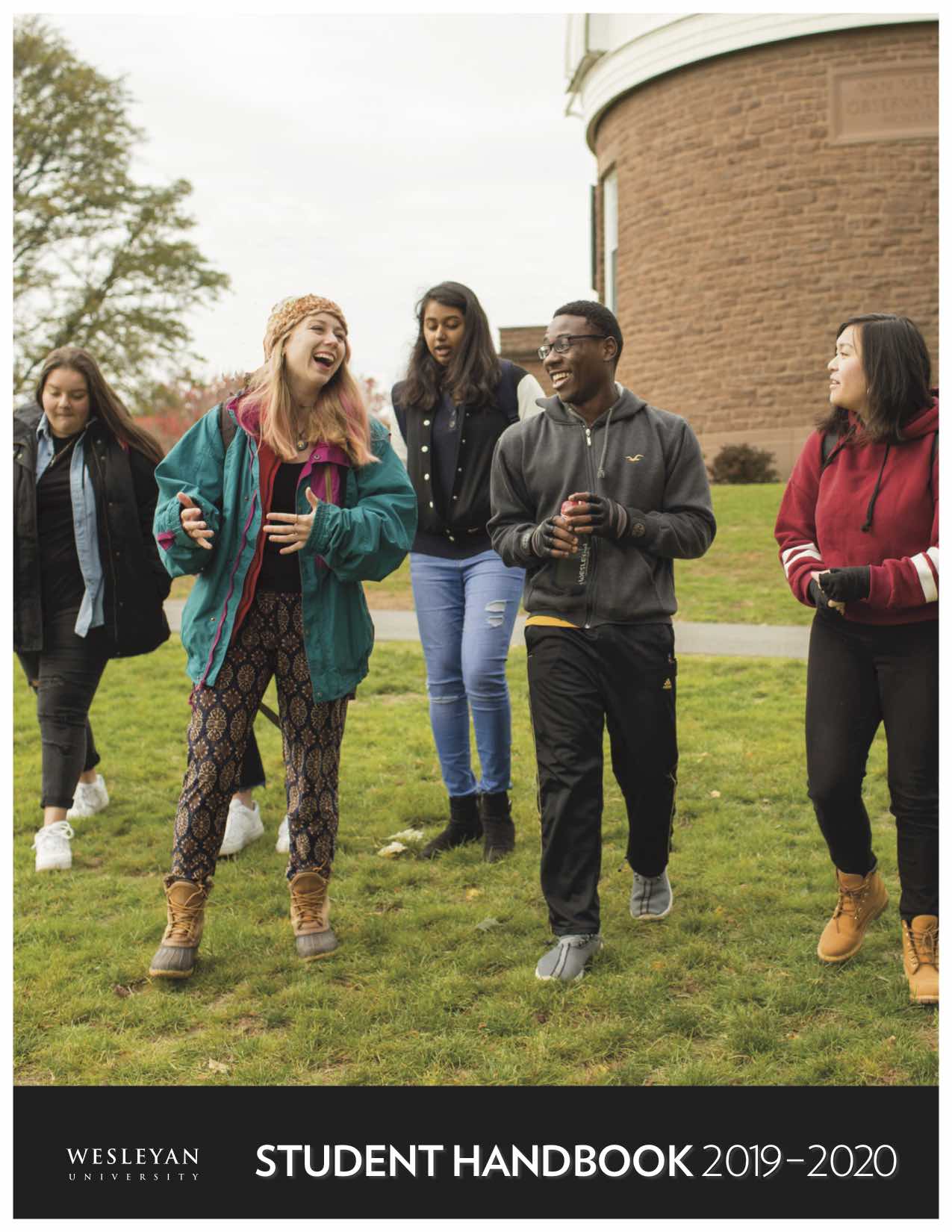
The Wesleyan Student Handbook has been updated for the 2019–2020 school year to reflect changes to the structure and composition of the Honor Board and Community Standards Board (CSB).
“This year [the] Honor Board and Community Standards Boards are going to be working more closely together and the handbook has been updated to reflect more uniform procedures for both boards,” Associate Vice President and Dean of Students Rick Culliton wrote in a campus-wide email.
The new policies in the handbook are not in response to concerns regarding student behavior; a 2017 report compiled by Assistant Dean of Students and Director of Community Standards Kevin Butler notes a decrease in both the number of students charged with violations of the Code of Non-Academic Conduct (CNAC) and the number of students found responsible for violating the CNAC—an 11 percent and 15 percent decrease, respectively. Rather, the goal of the changes is to streamline the process of judicial hearings and make the board’s operations more accessible to students.
“The University is trying to create a more inclusive structure for both boards, and they also want to increase the transparency—basically making the whole procedure more public,” Honor Board member Bright Palakarn ’20 told The Argus.
As a part of this process, the Honors Board and the CSB will have access to each others’ case records.
“The files of the Honor Board and the CSB will be more streamlined, so now if you’ve dealt with the CSB beforehand, your documents will also be with Honor Board if you meet with them,” explained Palakarn.
There are also logistical reasons for the structural changes.
“Dean [Louise S.] Brown, who oversaw the Honor Board before, retired, so now the Honor Board is under Dean Kevin Butler, who oversees the Community Standards Board, as well,” said Palakarn.
This year, the Honor Board, which was established in 1893 as a peer-to-peer system of ensuring academic honesty and integrity, will double its voting membership from four undergraduate students to eight students. The CSB, which is charged with adjudicating the CNAC, will also expand its membership, from 10 undergrads to 12 undergrads. Members of each board will continue to serve a maximum two-year term, with elected co-chairs serving one-year terms.
The composition of the Appeals Board for the Honors Board and CSB has also been modified for the 2019–2020 school year. The faculty member serving on the Appeals Board will now be chosen from a set of specially trained persons, instead of from the Faculty Committee on Rights and Responsibilities, a committee through which faculty members can lodge complaints against each other on the basis of Faculty Handbook violations.
“The faculty or staff member shall be selected from among those trained as judicial process advisors, Honor Board and Community Standards Board advisors, or Title IX panelists,” the handbook states.
In addition to compositional changes, the Office of Student Affairs has instituted minor procedural changes that will affect both boards. The primary update to judicial proceedings is the ability for eligible students to request Americans with Disabilities Act (ADA) accommodations during their hearings, such as note takers, visual aids, and organizational assistance.
A complete list of updates can be found in the 2019–2020 Student Handbook, available online through the Office of Student Affairs.
Erin Hussey can be reached at ehussey@wesleyan.edu or on Twitter as @e_riss.


Leave a Reply